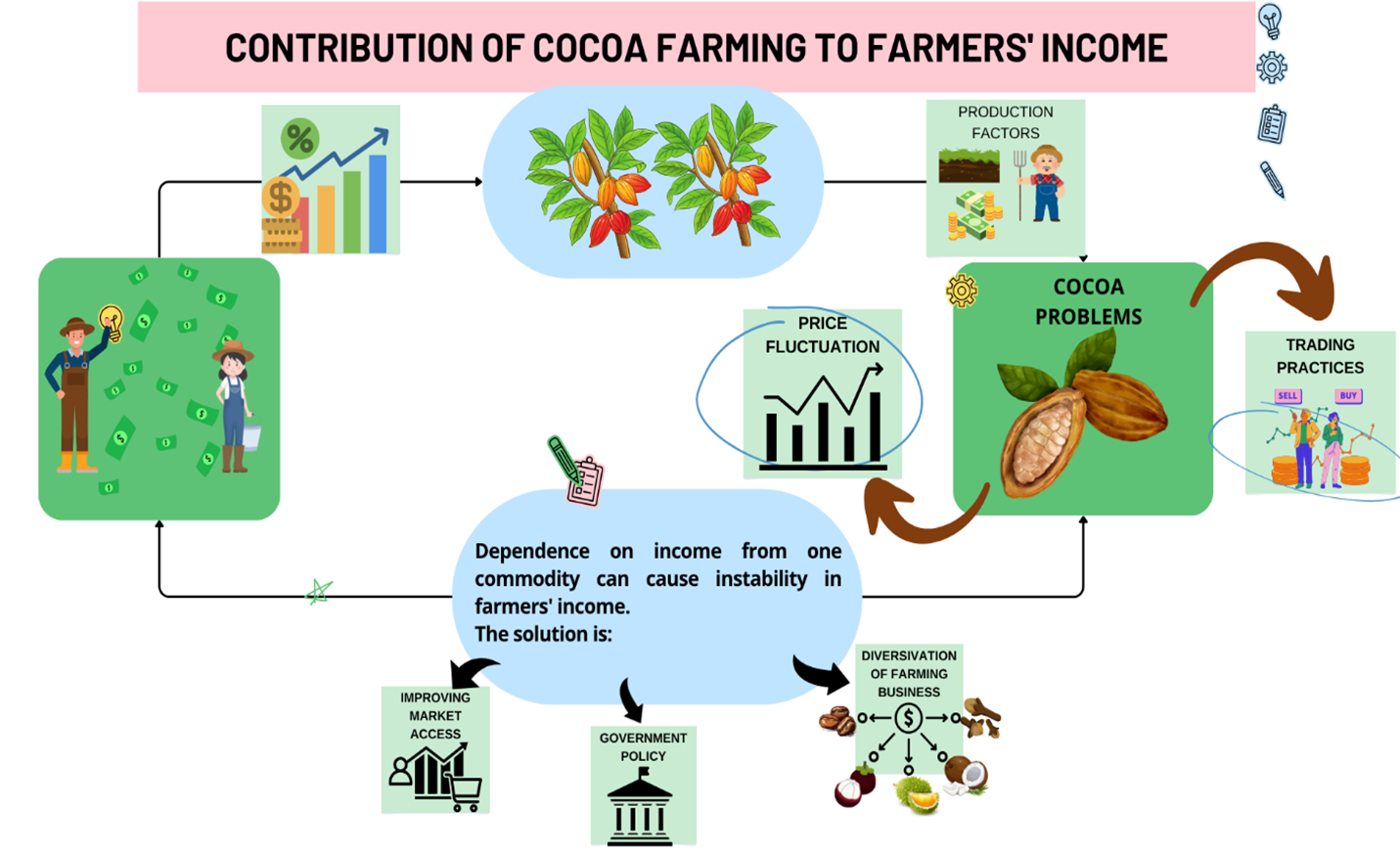Contribution of Cocoa Farming to Farmer Income
DOI:
https://doi.org/10.24843/ijoss.2025.v01.i02.p01Keywords:
Contribution, Cocoa, Income, Diversification, FarmingAbstract
BACKGROUND AND OBJECTIVES
Belatungan Village, located in Pupuan Sub-district, Tabanan Regency, is known as one of the plantation centers in Bali. Cocoa, as the main commodity, is the main source of livelihood for the local community. Cocoa farming has faced numerous challenges in recent years, including climate change, pest and disease outbreaks, and fluctuations in market prices. This study aims to determine the extent to which cocoa farming contributes to farmers' income and to compare income from cocoa farming with income from farming other than cocoa in Belatungan Village.
METHODS
This research used interviews and a literature study. The data analysis method analyzes the contribution of cocoa farming to farmers' income and compares cocoa farming with other farms using the t-test.
FINDINGS
The results showed that cocoa farming is the main source of income for farmers, with a contribution of IDR 53,912,366 or 63.13% of the total average income per year of IDR 85,402,209, which is in the medium category and close to the high income threshold. Income earned by farmers from coffee farming (24.14%), cloves (7.44%), and non-farm farming (5.30%) is a complementary source of income. The t-test analysis showed a significant difference between cocoa farming income and farming other than cocoa (t-count = 3.71 > t-table = 0.2120). The results showed that cocoa has a big role in the regional economy, so it is necessary to increase cocoa productivity and farm diversification to strengthen the economic resilience of farmers in Belatungan Village.
CONCLUSION
Dependence on income from a single commodity, which is not optimal, can be addressed with several steps. First, the diversification of farming businesses. Second, increasing access to markets and technology. Third, increased government support for cocoa farming sustainability, thereby improving the overall welfare of farmers.

Downloads
Published
Versions
- 2025-08-23 (2)
- 2025-07-24 (1)




